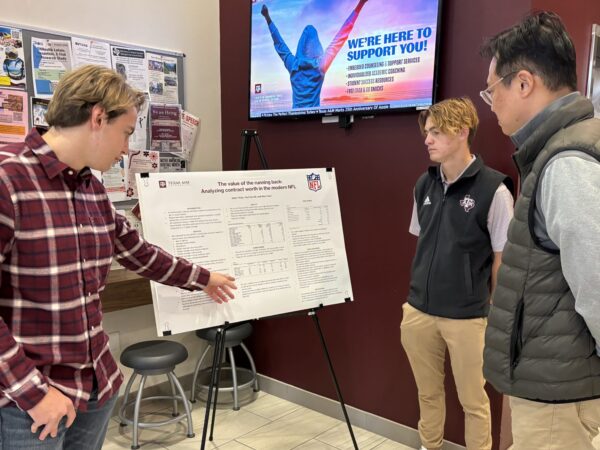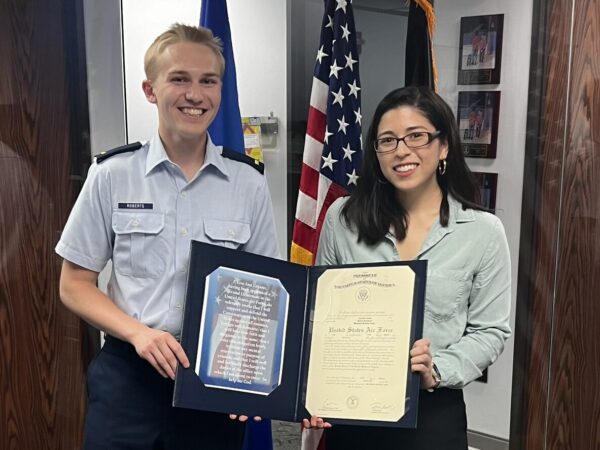Converging paths to create futures for superintendents in training
Nationally, Texas has more schools in rural areas than any other state with more than 20% of campuses located in rural areas.
However, Texas also boasts a large enrollment in urban schools. As of 2015, more than half of the state’s 5.1 million public school students were educated in 4% of its school districts. (Texas Tribune, 2015)
The Department of Educational Administration and Human Resource Development prepares the next generation of school superintendents to serve all districts in Texas, and beyond. Students in the Educational Administration doctoral program are taught by faculty who have spent many years as superintendents in urban and rural districts, both inside and outside of Texas.
OUR FACULTY
Dr. Abelardo Saavedra, professor of practice, worked as a school administrator for 36 years in urban districts. Before coming to Texas A&M, he was the general superintendent for five years at the Houston Independent School District, the largest school district in Texas.
For Saavedra, working as a superintendent was about creating and navigating a bold vision.
“Setting a vision and choosing the pathway to accomplish that vision is the most important thing that a superintendent does,” Saavedra said. “Laying out a challenging vision that will bring change to the system will hopefully improve the education of kids.”
Dr. Carl Fahrenwald, clinical assistant professor, has opposite experiences. Fahrenwald spent over 18 years as a rural educator prior to becoming superintendent of Rutland School District in Rutland, South Dakota. Fahrenwald spent 16 years at Rutland, a K-12 school with a total enrollment of about 150.
Along with his duties as superintendent, Fahrenwald taught a science course, would pick up the slack on bus routes, handle maintenance and anything else the school needed.
“If you have a bus driver that is gone, there is no such thing as ‘I am sorry, we cannot run the route’ so in order to cover that, I ended up getting my bus license just out of expediency,” Fahrenwald said. “I had to be able to jump in that bus myself, because kids were counting on us.”
Saavedra also worried about meeting the daily needs of his schools, but his main focus was how prepared students are for school.
“The majority of students in urban systems are children of poverty,” Saavedra said. “For example, a middle-class family might prepare their children for school through early reading or outside learning experiences. Children of poverty are ordinarily not exposed to those types of learning situations before entering a school.”
Saavedra said another challenge for the urban school superintendent is helping students set high goals for themselves.
“We as educators have a responsibility to make sure that we teach children that anything is possible,” Saavedra said. “They have not been exposed to those experiences, but equally as important is the fact that reaching high goals would be much more difficult for them than it would be for the same middle-class kid.”
Although a struggle, Saavedra said helping students break the cycle of poverty was the most rewarding experience as a school administrator.
“Regardless of whether it is just one student telling me I made a difference in their lives or that we succeeded in transforming a low- performance school that will impact, not only one child, but all future children attending that school, all of those are proud moments,” Saavedra said.
Fahrenwald’s unique position as superintendent and teacher proved useful when he planned professional development for his staff.
“Being a teacher as well as a superintendent was a daily reminder for me of what it took to do instruction,” Fahrenwald said. “Anything that I would come up with for professional development I had to run it through my own teacher lens and think ‘is this realistic’ or ‘who is going to have time for this’.”
He said this unique situation also helped him better serve Rutland’s students, because he was able to interact with them daily.
Superintendents at larger districts typically work out of remote offices that are not attached to the schools. Whereas, rural superintendents often work on the campus.
“As a rural superintendent, you step out of your office and in the hall, there are kids,” Fahrenwald said. “Being able to circulate through the building and be a direct presence to kids was the most wonderful thing.”
LEANING ON LIVED EXPERIENCE
Fahrenwald and Saavedra use their diverse experiences to teach courses that prepare doctoral students for the superintendent profession.
Fahrenwald teaches Foundations of Educational Administration, a course that provides soon-to-be superintendents with an overview of educational and leadership theory. He calls upon his own experiences as a science teacher in Africa and as a rural superintendent to prepare his students.
“We are preparing people to go anywhere and do school administration,” Fahrenwald said. “I like to remind my students that there may be a time where they are at an overseas school, but even if they stay in the country, or in Texas, some of these things about school administration are universal.”
Saavedra teaches School Superintendency, a course that teaches students how to evaluate administrative situations and make better decisions.
“Sharing my experiences with young people is important because it helps them understand how important their decisions are,” Saavedra said. “The decisions they will make as superintendents will impact the lives of many children moving forward.”
Saavedra also serves as a mentor to superintendents through the Broad Academy, a superintendents’ academy funded through the Broad Foundation in Los Angeles. He cited how important mentoring is for superintendents and thinks back fondly on a mentor he had, Rod Paige, former U.S. Secretary of Education.
“I consider him an important mentor over the years because I learned a lot from his experiences on how he handled the Houston Independent School District when he was there,” Saavedra said.
As for advice that Saavedra would give a mentee, he offers motivation.
“It’s important that as educators we not give up, because the future of the children that we are responsible for is dependent on us, and giving up because of challenges is basically giving up on children, and we should never do that,” Saavedra said.
Together, the faculty use their different experiences to educate future superintendents about how they can transform the lives of students in their districts.
“I would encourage educators to keep plowing forward because the future of these kids is on their shoulders,” Saavedra said.
This story originally appeared in the 2019 Transforming Lives magazine, an annual publication from the College of Education and Human Development.
About the Writer
Heather is responsible for news coverage in the Department of Health and Kinesiology, as well as the Department of Educational Administration and Human Resource Development.
Articles by HeatherFor media inquiries, contact our Media Relations Coordinator, Ashley Green
Fundraising
To learn more about how you can assist in fundraising, contact Amy Hurley, Director of Development ahurley@txamfoundation.com or 979-847-9455














